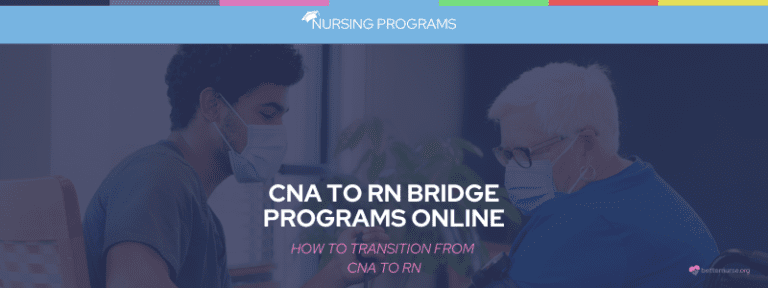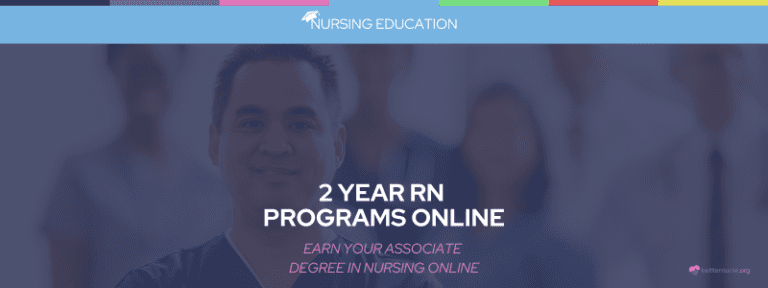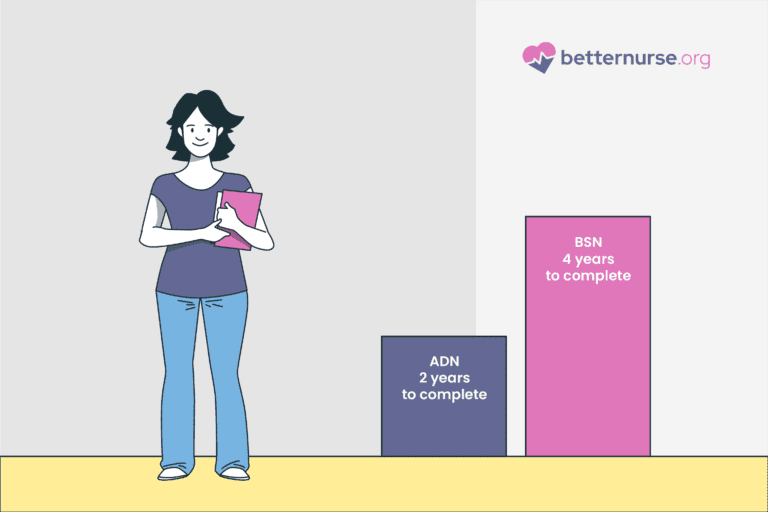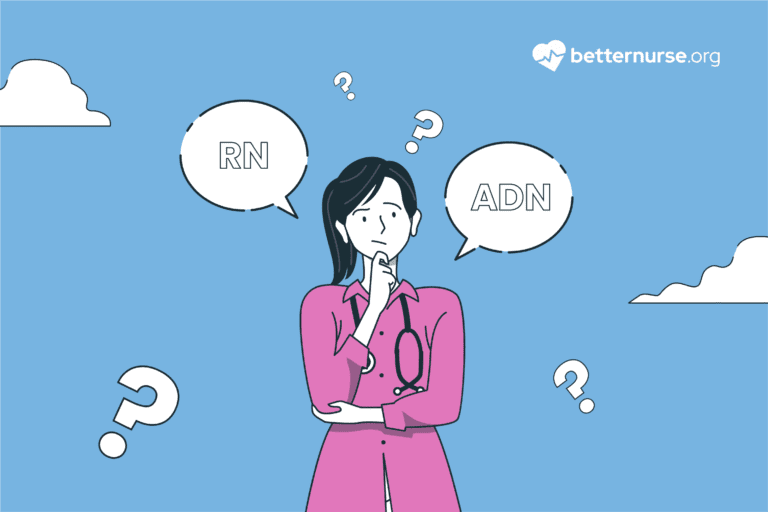Associate Degree in Nursing (ADN)
(ADN) Degree
Getting an associate degree in nursing allows you to pursue a career as a registered nurse. Discover the potential of an ADN in achieving your aspirations today.
Average ADN Program Length
2 years
Average Credits Required For an ADN
60-75 credits
ADN Average Annual Salary
$73,600
Opportunities With an ADN
Explore the Nursing Field
Explore whether a nursing profession aligns with your objectives without dedicating yourself to a four-year course.
Become an RN
An ADN degree equips students with the essential qualifications and readies them for the NCLEX-RN examination.
Credit Transfer
Credits earned from an ADN can be transferred to a four-year college to obtain a BSN.
Skills Learned
Graduates hold skills in critical thinking, communication, and organization.
Featured ADN Specialties
An ADN program is one of the quickest routes to becoming a RN. This page provides details on entry prerequisites, income prospects, and much more.
Registered Nurse
Emergency Room Nurse
OBGYN Nurse
Neonatal Nurse
Associate Degree in Nursing Salaries
The U.S. Bureau of Labor Statistics (BLS) doesn’t separate RNs with different degrees, but it reports the average yearly pay for all RNs is $77,600. The lowest-paid 10% made $59,450 or less in May 2021, and the highest 10% made $120,250 or more. Factors that determine their salary include where they live, their education, and how long they’ve worked.
COVID-19 drove high levels of nurse burnout, so some quit their jobs or left healthcare completely. Because of this and the aging population of US, there should be strong demand for nurses. The BLS projects a 9% increase in jobs for RNs between 2020 and 2030.
Admission Requirements for a BSN Program
Different schools have different rules for getting into two-year ADN programs. But usually applicants must typically submit:
A lot of MSN programs require students to have a BSN first. But some special programs allow students to join with an associate degree in nursing or a bachelor’s degree in a different field.
Most MSN programs require that students be licensed RNs. Some schools prefer students with 1-3 years of work experience, but that is not the case for all schools. Fast-track programs let students from other areas join, so they don’t need RN licenses.
Most graduate schools set a minimum undergraduate GPA for admission. That can be between 2.5-3.2, or even 3.5 in very competitive programs.
Not all MSN program require test scores, however, some programs request students to submit GRE or MAT scores.
Not every MSN program requires test scores, but some request students to submit GRE or MAT scores.
Not every MSN program requires test scores, but some request students to submit GRE or MAT scores.
Core Concepts of an ADN Program
The associate degree in nursing teaches safe, ethical, and legal nursing. Classes include how healthcare works, safety, and patient-centered care.
Students learn useful skills like running tests, checking health signs, and giving medical help; nursing habits like stopping infections and injuries; organizing skills like keeping health records, talking, and working together; and how to care for different patients, like children, pregnant women, and older people.
Clinical & Lab Components in a BSN Program
Besides classes, the ADN program has practice labs and real-life work at healthcare centers.
In practice labs, students can learn skills in a safe and controlled environment.
During clinical rotations, students are guided by a staff nurse and a specific teacher to care for a few patients, while being supervised.
Accredited ADN programs usually have 500 hours of clinical practice and fulfill national accreditation and state licensing needs.
What to Expect From an Online ADN Program
Remote students get the same training as those who attend classes in person. Coursework is online, but clinical hours have to be done in person at a healthcare facility near the student’s home. However, due to the pandemic, some programs may offer virtual clinical experiences.
Online courses fall into two categories: asynchronous, which has pre-recorded lectures students can watch at their own pace, and synchronous, which is like a regular class but on a live stream. Remote students require a good internet connection and a computer. Schools offer support and services, like advice, counseling, and tutoring, on the internet or by phone.





